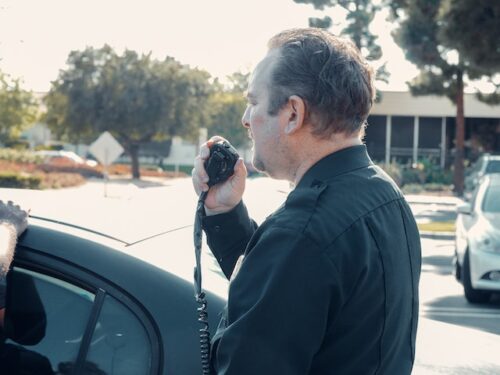
After a fun night out with friends, you’re driving home only to find some traffic on the main road. As you get closer, you notice there are signs and lights indicating that law enforcement is conducting a sobriety checkpoint ahead. Whether you had a drink or not, interacting with police can be anxiety-inducing. Keep reading to learn more about these safety measures and how a Cobb County DUI lawyer can help you.
What Is a Sobriety Checkpoint?
A sobriety checkpoint is a measure used by law enforcement to deter and catch drunk drivers. Generally, the police will set up roadblocks on a busy street during popular times of the year like the Fourth of July, Superbowl Sunday, or Memorial Day. These tend to be times when many make the decision to drink and drive.
Typically, the officer will ask the driver about their sobriety and for their license and registration. Officers use this as a means to stop drivers to look for signs of impairment. This includes paying attention to behavior to see if a driver has bloodshot eyes, slurred speech, clumsy movements, or smells of alcohol or drugs.
Are They Legal?
There are 12 states that currently outlaw DUI checkpoints, with their state’s court determining that they violate a citizen’s 4th Amendment right to be protected from unreasonable searches and seizures. However, Georgia does not consider sobriety checkpoints unlawful and therefore, does conduct these stops throughout the state.
In order to be legal in Georgia, a checkpoint must adhere to the following guidelines:
- There must be a notice in advance to the public about the checkpoint
- There must be proper signs indicating that a driver is approaching a checkpoint
- Random checks are not legal
- The checkpoint must be organized so as not to cause traffic
In some instances, the police will ask you to conduct a field sobriety test or use a breathalyzer. If you refuse, this cannot be used against you in court, but refusal can land you a suspended license regardless of whether or not you were drinking.
It is also legal to use side streets or U-turns to avoid the sobriety checkpoint, so long you are not committing any traffic violations or breaking the law to do so. This does not warrant an officer pulling you over to avoid the checkpoint.
What Should I Do if I’m Arrested at a Checkpoint?
If arrested at a DUI checkpoint, whether you’ve had a few drinks or not, it’s essential to follow the officer’s orders. Attempting to flee or resist arrest can only make matters worse. Similarly, you should invoke your right to remain silent, as you want to avoid accidentally incriminating yourself.
When you need a seasoned DUI lawyer, Miller Law Practice can help. Our firm has experience handling these cases and will work tirelessly to help you receive the best possible outcome for your circumstances. Reach out today to schedule a consultation to learn how we can help.